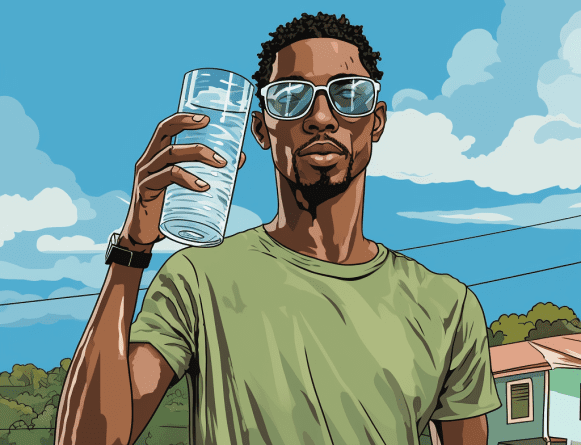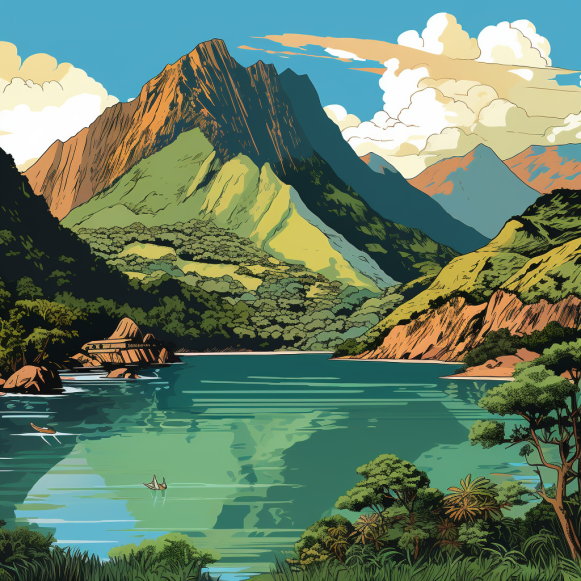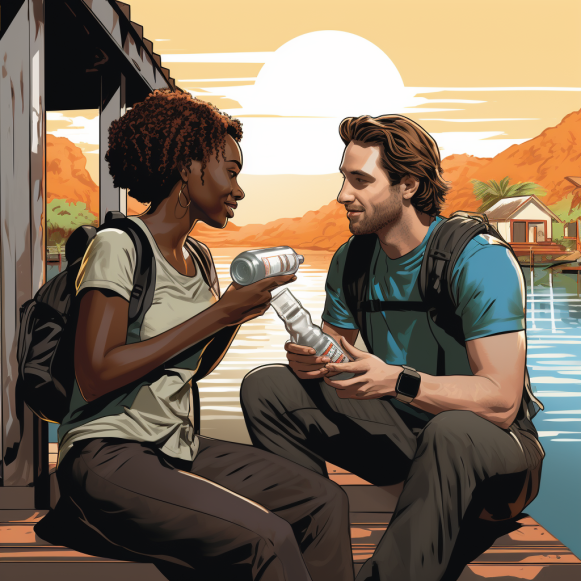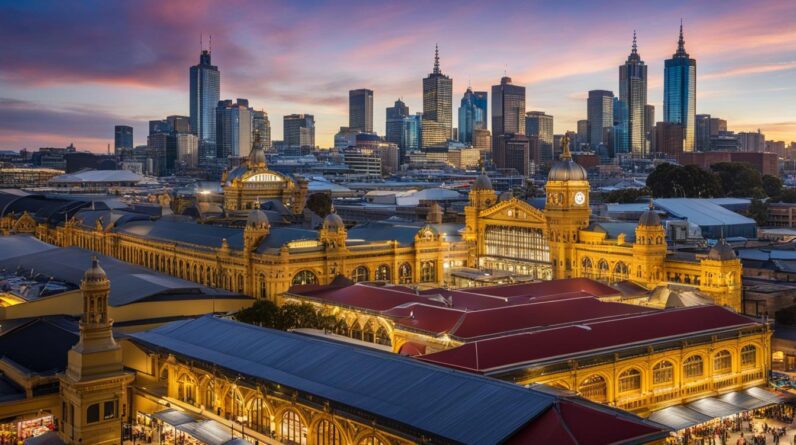
Don’t let water worries ruin your Caribbean dream! Find out how to sip safely in Grenada.
Why Worry About Water and if it’s safe?
You’re probably thinking about sipping cocktails by the beach or exploring lush rainforests.
But here’s something you might not have on your radar yet: water safety.
Sure, the topic may not be as thrilling as snorkeling in the coral reefs, but it’s crucial.
Why?
Because nothing ruins a trip faster than getting sick, especially from something as basic as water.
Your Health and Well-Being, Our Focus
That brings us to our main goal here:
ensuring you make the most of your Grenadian adventure by staying healthy and informed.
We’re diving deep into where Grenada gets its drinking water and how safe it really is to drink.
We aim to equip you, the savvy traveler, with all the information you need.
This way, you can decide whether to stick with bottled water or feel confident refilling that reusable bottle of yours.
So, grab your notepad or just keep scrolling, because this guide is your ultimate companion to understanding water safety in Grenada.
Understanding Grenada’s Water Sources
Water is life, especially when you’re miles away from home on a tropical island.
Knowing where your water comes from is the first step to making smart choices.
So, let’s dive into it.
Mainland Grenada
The Majestic Dams

Picture this: towering mountains filled with natural water reservoirs.
These aren’t just for show.
They’re one of the main sources of Grenada’s drinking water. Isn’t nature marvelous?
Enter NAWASA
You might wonder, how does the water get from those mountains to your glass?
Say hello to the National Water and Sewerage Authority, or NAWASA for short.
They treat and distribute water throughout the mainland, ensuring it meets high-quality standards.
The bottom line?
In most parts of mainland Grenada, you’re drinking dam water that’s been treated with care.
Smaller Islands (Carriacou and Petite Martinique)
All About Rainwater
So, you’re off to explore Grenada’s smaller siblings, like Carriacou and Petite Martinique. Great!
But hold on, the water situation here is a bit different.
Here, the skies are your water plant. That’s right, rainwater is collected and stored for use.
No Treatment, Big Problem?
Unlike the mainland, these islands don’t have fancy water treatment facilities.
They rely on nature’s filtration, which isn’t always foolproof.
So, what does this mean for you?
Be cautious. It’s generally safer to stick to bottled water when you’re on these smaller islands.
Seasonal Variations
The Thirsty Dry Season
Grenada isn’t always sunshine and rain. Come the dry season, groundwater comes into play.
It’s a backup, but not a substantial one.
Wet Season Abundance
On the flip side, the wet season is like nature’s happy hour for Grenada’s water supply.
Reservoirs fill up, and water becomes more abundant.
The takeaway?
Your water source could vary depending on when you visit. Knowledge is power, my friend.
And there you have it! You’re now well-versed in where Grenada gets its H2O.
Up next, we’ll dive into the real deal—how safe is this water for you to drink?
Is Grenada Tap Water Safe to Drink?

Alright, we’ve covered where the water comes from. Now let’s get to the heart of the matter:
Can you actually drink it without a second thought?
Spoiler alert:
It’s a bit more complicated than a simple yes or no.
But don’t worry, we’ve got the details for you.
WHO Standards Compliance
Quality, Quality, Quality!
Remember NAWASA? They’re not just pumping out any water; they’re treating it to meet World Health Organization (WHO) standards. That’s like the gold medal of water safety!
Making the Grade
How safe is “safe,” you ask? According to the WHO, pretty darn safe.
The organization sets rigorous guidelines for things like chemical content, bacterial levels, and overall purity.
In short?
Mainland Grenada’s tap water is generally up to WHO snuff.
Special Circumstances
Those Pesky Pipes
Even if the water is safe at the source, what about the journey it takes to get to your tap?
If you’re staying in an older establishment, be aware: lead piping could be a concern. And lead?
Not so great for your health.
You and Your Health
Another thing to consider is you—yes, you.
Are you pregnant?
Do you have a weakened immune system?
Some health conditions could make you more vulnerable to even low levels of contaminants.
So what’s the game plan?
If you fall into any of these special categories, taking extra precautions like using a water filter or sticking to bottled water might be wise.
Voila! You’re now equipped with the knowledge to navigate Grenada’s water landscape like a pro.
Whether you choose to refill that reusable bottle or stick to store-bought, you’ll be making an informed choice.
Practical Implications for Water for Regular Travelers
You’re almost there! Now that you’re armed with the intel on Grenada’s water sources and safety, let’s translate that into real-world, practical advice.
Because let’s be honest, what you really want is to enjoy your trip without a hitch—or a stomachache.
Avoiding Sickness
Steps to Take
Okay, prevention is key.
If you’re staying on the mainland, tap water should generally be safe.
But if you’re the cautious type, use a portable water filter.
It’s like a safety net for your gut.
The tip-off.
Smell or taste something off in the water?
That’s a red flag. Don’t drink it.
Signs of Contaminated Water
Look, even the best plans can go awry. If you’re drinking water and it has an unusual taste, smell, or color—halt! Those are telltale signs that something might be off.
In a nutshell?
When in doubt, opt out.
Making Informed Choices

Bottled Water vs. Tap Water
Here’s the scoop:
Bottled water is the ultimate fail-safe, especially when you’re on the smaller islands with no treatment facilities.
But hey, you’ve got options on the mainland. Your call!
Reusable Bottles: When is it Safe to Refill?
Eco-conscious? Awesome.
Reusable bottles are your friend.
If you’re on the mainland and the tap water checks out, fill ‘er up!
But remember, if you’re venturing to one of the smaller islands like Carriacou or Petite Martinique, stick to bottled water.
Last words
Your health comes first. Make your choices wisely.
Conclusion
You’ve made it to the finish line, and now you’re brimming with knowledge about water in Grenada.
But what does all this information boil down to? Let’s encapsulate the essentials, so you can dive into your trip fully prepared and worry-free.
Summarize Key Takeaways for Regular Travelers
So, a quick recap:
- Mainland Grenada? Generally safe tap water, thanks to top-notch treatment by NAWASA.
- Smaller islands like Carriacou and Petite Martinique? Stick to bottled water.
- Seasonal variations? Dry season might lean on groundwater, but still okay for the most part.
- Health concerns? Be extra cautious if you have a condition that might make you vulnerable to waterborne issues.
In a nutshell?
Know where you are, know what you’re drinking.
The Importance of Being Informed for a Better Travel Experience
Listen, the more you know, the better your trip will be.
It’s as simple as that.
Being informed about water safety isn’t just a health concern—it’s a ticket to a smoother, more enjoyable vacation.
Why does it matter?
Because the little things—like knowing when to opt for a reusable bottle or when to crack open a fresh bottle of store-bought water—make a big difference.
You’re not just a traveler; you’re an informed traveler.
And that, my friend, is a game-changer.
Resources
You’ve got the info, but maybe you’re the kind who likes to dig deeper.
Or perhaps you want to bookmark some sources for quick reference while you’re traveling.
Either way, we’ve got you covered.
- Water Resources in Grenada:
Learn about Grenada’s approach to water management from the Grenada Climate Finance Portal - Is It Safe to Drink Water in Grenada?:
For those looking to dissect the safety measures, check out Caribbean Authority’s detailed report - Water Supply and Sanitation:
The Wikipedia page might sound dry, but it’s a treasure trove of information - Quality and Treatment by NAWASA:
Curious about how Grenada’s National Water and Sewerage Authority manages water? Head over to Bing’s search result for more information - WHO Standards:
To understand how Grenada stacks up against global norms, take a look at TapSafe’s detailed report - Travel Magma’s Take:
If you want another perspective on water safety in Grenada, Travel Magma has some insights - Local Water Safety:
IsWaterSafeToDrink offers another detailed take on Grenada’s tap water safety - St. George’s Water Report:
If you’re planning to stay in the capital, My Adventure Report has details on St. George’s water quality



